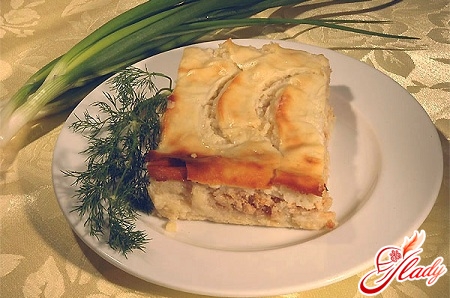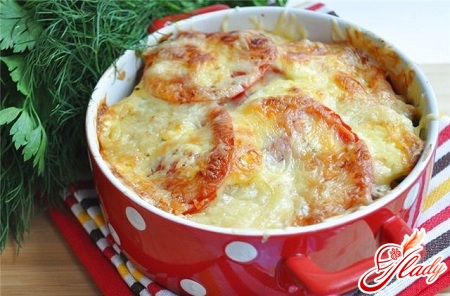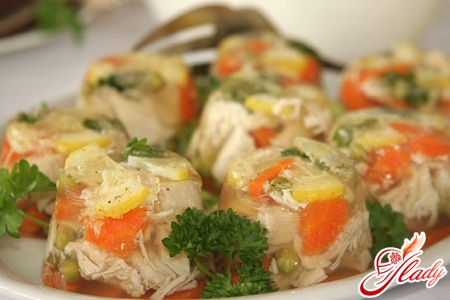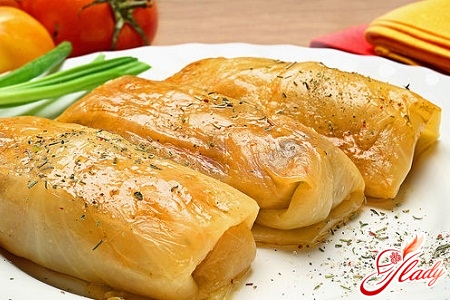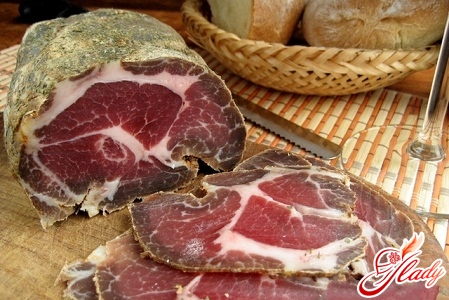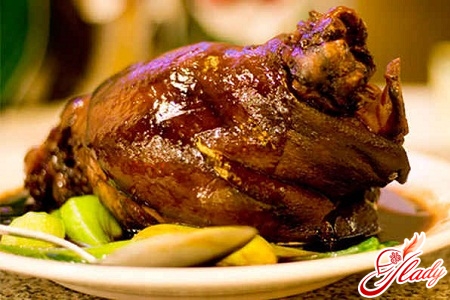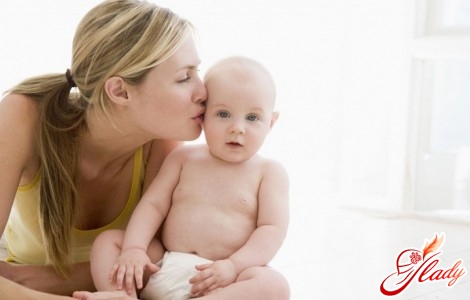 There are many myths about breastfeeding.feeding. A special diet for a nursing mother is the most common myth. And the recommendations of pediatricians in maternity hospitals and children's clinics are based on statistical data: since the number of children with allergies is rapidly growing, the recommendations include more and more restrictions in the diet of the mother in labor. As a result, from the first days of breastfeeding, the nursing mother is so limited, as if she and the baby already have a hereditary food allergy. However, as practice shows, most often food allergies (the most popular form is diathesis) occur in children who are bottle-fed, and not in infants. Proper nutrition for a nursing mother is the most important component of breastfeeding. Breastfeeding specialists, as a rule, recommend excluding from the nursing mother's menu such allergens as all red and orange fruits and vegetables, for example, carrots, red apples, tangerines, oranges, etc. But food is the main source of vitamins, minerals and nutrients necessary for the growth and development of the body. It has been proven that with a limited and meager diet of a nursing mother, not only her body, which has not yet recovered after childbirth, suffers, but also the body of the baby. The strongest allergens are chocolate, strawberries, crayfish, shrimp and peanuts. Therefore, a nursing mother should avoid eating these products when making up her diet. Currently, it has been proven that the gradual introduction of allergens through breast milk is the most effective method that allows the baby to develop resistance to the occurrence of allergies in the future. Breast milk helps the baby get acquainted with the products that he will eat when he grows up. Therefore, a child predisposed to allergies is not recommended to be weaned until he has become acquainted with all the products through breast milk. The principle of gradual introduction of new products into the diet of a nursing mother must be followed by women giving birth with babies under 4 months. Also, a nursing mother should remember that breast milk not only allows a newborn baby to adapt to allergens, but also directly affects the health of the child. Basic principles aimed at proper nutrition for a nursing mother:
There are many myths about breastfeeding.feeding. A special diet for a nursing mother is the most common myth. And the recommendations of pediatricians in maternity hospitals and children's clinics are based on statistical data: since the number of children with allergies is rapidly growing, the recommendations include more and more restrictions in the diet of the mother in labor. As a result, from the first days of breastfeeding, the nursing mother is so limited, as if she and the baby already have a hereditary food allergy. However, as practice shows, most often food allergies (the most popular form is diathesis) occur in children who are bottle-fed, and not in infants. Proper nutrition for a nursing mother is the most important component of breastfeeding. Breastfeeding specialists, as a rule, recommend excluding from the nursing mother's menu such allergens as all red and orange fruits and vegetables, for example, carrots, red apples, tangerines, oranges, etc. But food is the main source of vitamins, minerals and nutrients necessary for the growth and development of the body. It has been proven that with a limited and meager diet of a nursing mother, not only her body, which has not yet recovered after childbirth, suffers, but also the body of the baby. The strongest allergens are chocolate, strawberries, crayfish, shrimp and peanuts. Therefore, a nursing mother should avoid eating these products when making up her diet. Currently, it has been proven that the gradual introduction of allergens through breast milk is the most effective method that allows the baby to develop resistance to the occurrence of allergies in the future. Breast milk helps the baby get acquainted with the products that he will eat when he grows up. Therefore, a child predisposed to allergies is not recommended to be weaned until he has become acquainted with all the products through breast milk. The principle of gradual introduction of new products into the diet of a nursing mother must be followed by women giving birth with babies under 4 months. Also, a nursing mother should remember that breast milk not only allows a newborn baby to adapt to allergens, but also directly affects the health of the child. Basic principles aimed at proper nutrition for a nursing mother:
Caloric content of food
After the birth of a child, a nursing motheris responsible for both her own health and the health of her newborn baby. The amount of breast milk and the nutritional content in it directly depends on the nutrition of the nursing mother. It has been proven that, on average, the caloric content of a mother's diet during breastfeeding should be 500-800 kcal higher than usual. By the way, it is not recommended to follow weight loss diets during breastfeeding.
Organization of the feeding regime of the nursing mother
A mother who is breastfeeding her baby needseat often and in small portions, preferably - consume the main part of the food after feeding and eat some more immediately before feeding - it is believed that this will increase milk. You need to eat in moderation, do not overeat. By the way, it is best to organize the main meal during the baby's sleep - this will allow the mother to take a comfortable position, eat calmly and not be distracted by caring for the child. This diet is especially recommended for nursing mothers with infants aged from birth to six months.
Varied nutrition of nursing mother
The nutrition of a nursing mother should be as nutritious as possible.more varied, otherwise the absence of any useful product can lead her and the baby to vitamin deficiency. It is not recommended to follow diets, especially single-product ones, for example, apple, cottage cheese, rice, etc. - this is fraught with a sharp decrease in the amount of proteins, carbohydrates, fats and vitamins in the mother's body and in breast milk. As a result of a mono-diet, both - both the mother and the baby - will receive severe stress. Moreover, the child may refuse the breast, and the transition to artificial feeding will provoke the emergence of gastrointestinal tract problems in the baby.
The rate of liquid intake during the day
Liquid plays one role in the diet of nursing mothersof important roles. Losing a lot of fluid from the body during childbirth, a nursing mother needs to replenish it, otherwise this can lead to dehydration. The amount of milk produced directly depends on the amount of fluid consumed. The minimum fluid a person needs per day is 1-1.5 liters. You can also calculate your norm using a simple formula: for every 1 kg of weight, you need to consume 30 ml of liquid. For example, if the weight of a woman in labor is 60 kg, the required amount of liquid will be 1.8 liters. Keep in mind that this is the norm only for maintaining the body of a nursing mother. To produce a sufficient amount of breast milk, you should consume 2 times more liquid. By the way, it has been proven that drinking one glass of drinking water 15-20 minutes before feeding helps milk arrive. Carbonated drinks, including mineral water, are prohibited for a nursing mother, since the gases contained in the water excite fermentation processes in the intestines, which leads to colic in the baby's tummy. In addition, preservatives and dyes easily penetrate into breast milk. It is allowed to drink only non-carbonated mineral water. Natural juices are certainly useful, but it should be noted that the juice of squeezed red apples, grapes, tomato juice and citrus juices is not recommended. You can drink weak coffee and tea. Otherwise, it will negatively affect the nervous system of the child. By the way, green tea contains even more caffeine than weak coffee. And tea with milk, a popular grandmother's recipe, does not lead to increased lactation, but also causes harm. Ideally, the main drink of a woman during lactation should be filtered drinking water or spring water. Alcoholic drinks should be excluded unambiguously, since, penetrating into breast milk, alcohol can lead to inhibition of the development of both physical and mental abilities, or, even worse, cause alcohol poisoning in a child.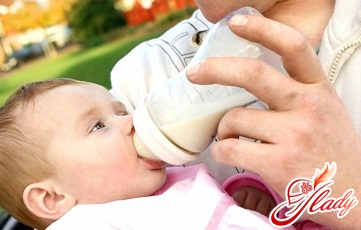 First of all, so as not to harm yourноворожденному малышу, кормящая мама должна составить собственное меню, учитывая все потенциально опасные продукты. Большое внимание следует уделить обязательным блюдам в меню кормящей мамы. Напрямую состав молока не зависит от того, что кушает мама. Молоко – это очень сложная по составу жидкость, которая синтезируется из компонентов крови и лимфы и зависит от внутреннего механизма лактации. Потенциальную опасность для ребенка несут соленые, копченные, жирные блюда. Их желательно полностью исключить из рациона кормящей мамы. Нежелательны консервы, соления, маринады. Вредно и большое количество специй, не злоупотреблять луком и чесноком. Мясо должно присутствовать в рационе питания ежедневно. Предпочтение следует отдать кроличьему мясу, белому мясу птицы, телятине или свинине. Мясо богато белком, необходимым для обеспечения всех жизненных процессов любого организма. Белок состоит из 22 аминокислот, которые при расщеплении всасываются в кровь. При недостатке белка организм теряет мышечную массу, иммунитет слабеет, нарушается ритм сердечной и дыхательной системы. Предпочтительный способ приготовления – варка. Жарку не рекомендуют. Рыба также необходима организму кормящей матери. Из всего многообразия рыбы лучше всего выбирать нежирные виды такие как – хек, минтай, судак, треска и т.д. Рыба богата белком и витамином D. Печень рыб, особенно трески, богата многими микроэлементами и витаминами. Предпочтительный способ приготовления – варка. Молочные продукты важны для меню кормящей мамы как мясо и рыба. Молоко и кисломолочная продукция богаты белком и кальцием. Кальций незаменим для костного аппарата, хорошей работы сердечно-сосудистой и прочих систем организма. Именно нехватка кальция провоцирует развитие рахита у маленьких детей. Кисломолочные продукты улучшают пищеварение. Доказано, у кормящей матери регулярно употребляющей кисломолочные продукты, ребенок реже страдает запорами. Рекомендуемая доза в употреблении молочных и кисломолочных продуктов, особенно жидкостей, например, молока или кефира, — не более 500-800 г в день. Превышение указанной нормы может привести к появлению аллергических реакций у ребенка. Овощи и фрукты не менее важны в рационе питания кормящей мамы из-за высокого содержания клетчатки, — это способствует хорошему функционированию пищеварительного тракта и кишечной системы организма. К тому же, овощи и фрукты содержат целый ряд витаминов и микроэлементов. Крупы богаты пищевыми волокнами, особенно гречневая, пшенная и овсяная. В целом, рацион питания кормящей мамы должен быть таким, как и во время беременности. Специальная диета или какое-либо ограничение в питании могут быть назначены врачом в особых случаях, например, когда мать ребенка является носителем аллергии пищевой, на шерсть животных, пыльцу и так далее, либо семья находится на неполноценном питании. Если мать или отец страдают каким-либо видом аллергии, то ребенок может наследовать это на генетическом уровне. Поэтому кормящей маме следует более тщательно следить за своим рационом питанием, так как в этом случае грудничок может страдать диатезом, особенно в первые два месяца жизни. Однако кормящая мама-аллергик должна знать, что, прежде всего, диатез у детей могут вызвать такие продукты как:
First of all, so as not to harm yourноворожденному малышу, кормящая мама должна составить собственное меню, учитывая все потенциально опасные продукты. Большое внимание следует уделить обязательным блюдам в меню кормящей мамы. Напрямую состав молока не зависит от того, что кушает мама. Молоко – это очень сложная по составу жидкость, которая синтезируется из компонентов крови и лимфы и зависит от внутреннего механизма лактации. Потенциальную опасность для ребенка несут соленые, копченные, жирные блюда. Их желательно полностью исключить из рациона кормящей мамы. Нежелательны консервы, соления, маринады. Вредно и большое количество специй, не злоупотреблять луком и чесноком. Мясо должно присутствовать в рационе питания ежедневно. Предпочтение следует отдать кроличьему мясу, белому мясу птицы, телятине или свинине. Мясо богато белком, необходимым для обеспечения всех жизненных процессов любого организма. Белок состоит из 22 аминокислот, которые при расщеплении всасываются в кровь. При недостатке белка организм теряет мышечную массу, иммунитет слабеет, нарушается ритм сердечной и дыхательной системы. Предпочтительный способ приготовления – варка. Жарку не рекомендуют. Рыба также необходима организму кормящей матери. Из всего многообразия рыбы лучше всего выбирать нежирные виды такие как – хек, минтай, судак, треска и т.д. Рыба богата белком и витамином D. Печень рыб, особенно трески, богата многими микроэлементами и витаминами. Предпочтительный способ приготовления – варка. Молочные продукты важны для меню кормящей мамы как мясо и рыба. Молоко и кисломолочная продукция богаты белком и кальцием. Кальций незаменим для костного аппарата, хорошей работы сердечно-сосудистой и прочих систем организма. Именно нехватка кальция провоцирует развитие рахита у маленьких детей. Кисломолочные продукты улучшают пищеварение. Доказано, у кормящей матери регулярно употребляющей кисломолочные продукты, ребенок реже страдает запорами. Рекомендуемая доза в употреблении молочных и кисломолочных продуктов, особенно жидкостей, например, молока или кефира, — не более 500-800 г в день. Превышение указанной нормы может привести к появлению аллергических реакций у ребенка. Овощи и фрукты не менее важны в рационе питания кормящей мамы из-за высокого содержания клетчатки, — это способствует хорошему функционированию пищеварительного тракта и кишечной системы организма. К тому же, овощи и фрукты содержат целый ряд витаминов и микроэлементов. Крупы богаты пищевыми волокнами, особенно гречневая, пшенная и овсяная. В целом, рацион питания кормящей мамы должен быть таким, как и во время беременности. Специальная диета или какое-либо ограничение в питании могут быть назначены врачом в особых случаях, например, когда мать ребенка является носителем аллергии пищевой, на шерсть животных, пыльцу и так далее, либо семья находится на неполноценном питании. Если мать или отец страдают каким-либо видом аллергии, то ребенок может наследовать это на генетическом уровне. Поэтому кормящей маме следует более тщательно следить за своим рационом питанием, так как в этом случае грудничок может страдать диатезом, особенно в первые два месяца жизни. Однако кормящая мама-аллергик должна знать, что, прежде всего, диатез у детей могут вызвать такие продукты как:
- citrus fruits (orange, mandarin, lemon, grapefruit);
- dairy;
- strawberries, raspberries, sea-buckthorn berries;
- protein of beef and poultry meat;
- fish and fish products;
- soybeans, beans and more.
Allergies in babies can also be caused by various thingsadditives used in the food industry, such as dyes, preservatives, flavors, even those found in baby food. If the baby is prone to allergies, then the nursing mother needs some dietary restrictions. In the first one or two weeks of an allergic child's life, cow's milk, eggs, chicken, fish, nuts, chocolate, coffee, cocoa, citrus fruits and much more are usually excluded from the nursing mother's diet. Dietary restrictions are set by a doctor. After a certain time, dangerous products are introduced one by one into the nursing mother's diet. If the baby has an allergic reaction in the form of reddened cheeks, dry and peeling skin on the legs, elbows, increased gas formation, bloating, etc., then this product must be excluded from the diet for 1 month, and then an attempt to introduce it into the feeding diet must be repeated. In short, breastfeeding an allergic child will certainly require strict dietary restrictions from the mother. However, as practice shows, if all the specialist's recommendations are followed, the child in most cases outgrows his allergy with minimal consequences. By the way, a bottle-fed child requires stricter dietary restrictions than a breastfed baby, and the family will still have to give up some foods or dishes so as not to tempt the child with sweets or something tasty, but highly allergenic for him. It should be noted that very often a baby may react not to a specific product, but to a certain recipe, for example, stewed meat with cabbage or potatoes stewed with mushrooms. Therefore, even if the mother does not breastfeed, she will have to follow a diet and, most likely, for more than one year. Thus, the diet of a nursing mother plays a very important role in the health of a newborn baby. This is not difficult to do, and if problems arise, a breastfeeding consultant and a pediatrician will help solve all the difficulties. Health to you and your baby! We advise you to read:




